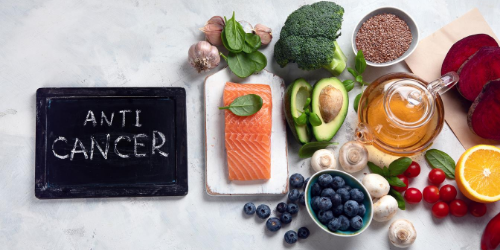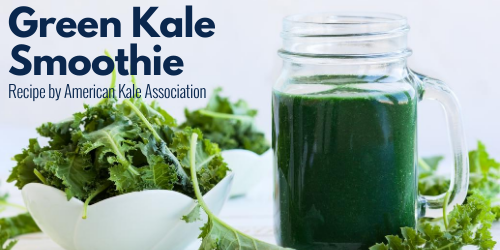Cancer is the second leading cause of death in the United States and is one of the world's most researched diseases. Over the decades, there has been an increase in cancer diagnoses. Yet, the truth is, cancer has been affecting people for centuries. According to the American Cancer Society, there are documented cases of cancers dating back to 3000 B.C.
In 1971, President Nixon declared war on cancer when he signed the National Cancer Act into law. Since then, The National Cancer Institute has spent roughly $90 billion on research and treatment. There are also about 260 nonprofit organizations in the United States dedicated to cancer research. There has been plenty of progress in cancer treatment, yet we know there is still a long way to go.
Cancer scientists and researchers agree that certain behavioral and lifestyle factors can increase the risk of cancer. This year, The American Cancer Society published its updated guidelines on diet and physical activity for cancer prevention. These updates reflect the latest findings since the last update in 2012.
I hope you take the time to read and share this newsletter with others. Please don't hesitate to reach out with additional questions or to schedule a private consultation.
-Stephanie
|
|
|
2020 American Cancer Society Guidelines for Cancer Prevention
|

Move More, Sit Less. Adults should engage in 150-300 minutes of moderate-intensity or 75-150 minutes of vigorous-intensity physical activity per week; achieving or exceeding the upper limit of 300 minutes is optimal. Children and adolescents should engage in at least 1 hr of moderate or vigorous‐intensity activity each day. The most significant reduction in cancer risk occurs when people change from no physical activity to any amount. The bottom line is, move more, and sit less.
Eat More Plants. Focus on a variety of colored fruits and vegetables, and enjoy fiber-rich beans, legumes, and whole grains.
Limit or Avoid Red and Processed Meat. For decades, health experts have been recommending to limit or avoid red and processed meat. The latest guidelines for cancer prevention reinforce these findings. Beef, veal, pork, and lamb are the most commonly consumed red meat sources in the United States. Processed meat includes meat that has been flavor-enhanced, cured, smoked, salted, fermented, or has gone through other preservation processes. Examples of processed meat include bacon, sausage, ham, bologna, hot dogs, and deli meats.
Drink Mostly Water and Unsweetened Drinks. Sugar, corn sweetener, high-fructose corn syrup, and other forms of sugar added to beverages contribute to weight gain and increase cancer risk. The new recommendations highlight the importance of limiting or avoiding sugar-sweetened drinks and replacing them with more water.
Limit Consumption of Processed Foods. Highly processed foods include industrially produced grain-based desserts, ready-to-eat or ready-to-heat foods, snack foods, candy, and other processed foods. While peeling, cutting, and freezing fresh vegetables and fruit is technically a form of processing, these foods still retain their nutrients when prepared this way and aren't included in the recommendation of limiting processed foods. When referring to the topic of processed foods, it's crucial to take into consideration the type of processing.
Achieve and Maintain a Healthy Body Weight. Achieve and maintain a healthy body weight throughout life. In today's weight-obsessed culture, what does "healthy body weight" even mean? For adults, healthy body weight is defined as the appropriate body weight in relation to height. This ratio of weight-to-height is known as the body mass index (BMI). Work with a professional to determine how to reach and maintain a healthy weight based on your body.
Best Not to Drink Alcohol: In 2020, the recommendations changed from "if you drink alcohol, limit consumption" to "it is best not to drink alcohol." People who choose to drink alcohol should limit it to no more than one drink per day for women and two drinks per day for men.
|
|
|
2020 Cancer Prevention Cliff Notes
|

- Physical activity can fight cancer development by promoting healthy insulin production, glucose metabolism, immune function, and sex hormones.
- Plant-based foods provide a variety of nutrients, antioxidants, and phytochemicals that fight inflammation. They also help achieve and maintain healthy body weight.
- Choose protein foods such as fish, poultry, and beans more than red meat. If you consume processed meats, eat them sparingly.
- Evidence suggests that a diet high in added sugars influences levels of insulin and related hormones in ways that may increase the risk of certain cancers.
- Highly processed foods are generally higher in fat, added sugars, refined grains, and sodium and are associated with increased body weight.
- Maintaining a healthy weight helps keep the hormones like insulin and estrogen in healthy ranges and minimizes inflammation and oxidative stress.
- Research strongly suggests: to reduce the risk of cancer, don't drink alcohol.
|
|
Featured Recipe
Green Kale Smoothie
|

Recipe by American Kale Association
Recipe Ingredients:
- 1 cup kale
- 1 cup spinach
- 1 cup honeydew or melon
- 1 green apple
- 1 tbsp fresh lemon juice
- 1 tbsp flax seeds (optional)
- 1/4 cup water
- 1 cup of ice cubes
Recipe Instructions: Mix in Vitamix until smooth. You can add in flax seeds, the Vitamix protein powder (which is tasteless), avocado, banana, raw oats, nuts, etc.
|
|
|
Be Inspired
|
|
"When we long for life without difficulties, remind us that oaks grow strong in contrary winds, and diamonds are made under pressure."
– Peter Marshall
|
|
|
About SO Nutrition
|
 Stephanie Leipprandt Ouellette, MBA, RDN, LD
Stephanie Leipprandt Ouellette, MBA, RDN, LD Stephanie has been working in the field of nutrition and dietetics since 1995. She earned a Bachelor of Science degree in Dietetics from Michigan State University, completed an Approved Pre-Professional Practice Program at Western Michigan University and earned a Master of Business Administration from Baker College. She’s been a Registered Dietitian Nutritionist since 1996 and licensed in Texas since 2007. In 2008, Stephanie earned her certification in Childhood and Adolescent Weight Management. Stephanie has extensive clinical & managerial experience, both in corporate settings and in the community. Now she wants to share her knowledge with you, because most (if not all) nutritional habits begin at home.
Stephanie and her family reside in Katy, Texas
|
|
| |
Copyright © 2020 Customized Nutrition Newsletters, All rights reserved.
|
|
| |
|
|